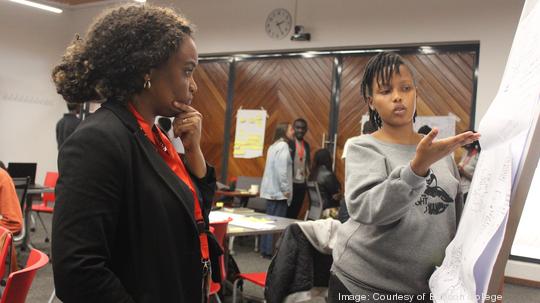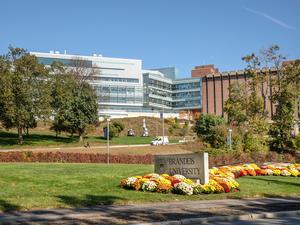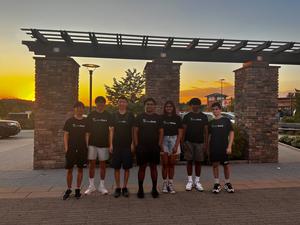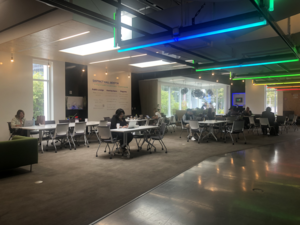
A health-focused innovation center at Babson College, best known for its business and entrepreneurship curriculum, has received the college's first-ever grant from the National Institutes of Health.
The Kerry Murphy Healey Center for Health Innovation and Entrepreneurship (KMH Center), which was started in 2019, will use the funding from the NIH’s National Institute on Drug Abuse to create an entrepreneurship program for scientists researching the overdose epidemic and substance use disorders.
“For the center, we’re really looking at how we bring health innovation and entrepreneurship to unmet health challenges and underserved markets,” said Wiljeana Glover, the KMH Center’s faculty director.
The goal of this new entrepreneurship program will be to help physicians and scientists commercialize inventions or clinical approaches to treating substance use disorders. Glover said this fits into the center’s larger mission of creating more health-focused startups.
The grant is expected to provide up to $1.5 million over five years, which will allow Babson to host four cohorts of around two dozen health professionals in the program.
The week-long program will cover topics like building an entrepreneurial leadership mindset, communicating on science topics with customers and tech transfer and commercialization. Participants will be matched with entrepreneurs who have an interest in health startups for mentorship and will also spend time touring Boston-area health companies and labs.
Glover said they’re in the early stages of establishing the curriculum and gathering health and entrepreneurship experts to be guest speakers. Babson has the benefit of pulling some curriculum from a recently ended biopharma program, she said. The next few months will be spent recruiting professionals to participate in the program and the first cohort will start next summer.
Glover said one of the program’s challenges will be overcoming perceptions that scientists have about commercializing their discoveries.
“Sometimes, particularly in academic medicine, that can be perceived as outside of the scope or realm of interest of pure science…that somehow it would be tainted by thinking about business,” Glover said. “However, I think there’s been a shift and I think Boston is at the heart of that shift.”
Glover said she’s seeing more scientists say, “if we want to get the best solutions to patients, to the community, to society, business can be a fantastic vehicle for doing that.”
There is also a growing market for solutions to the opioid epidemic, Glover said. She noted that much of this is driven by NIH and its call for proposals in this area.
“We know that substance use disorder is one of those disease states that doesn’t get as much attention,” Glover said. Babson’s new program will hopefully bring forward new solutions.
This new program isn’t Babson’s first foray into combining health and entrepreneurship. The KMH Center has a research consortium for faculty and companies, experiential learning programs for students and continuing education services, which is where this new NIH-funded program fits in.
Glover said the center’s largest student program thus far has been its Global Health Innovation Lab, which pairs Babson students with students from around the world. Its first partnership with Paul Farmer’s University of Global Health Equity in Rwanda had student groups work on solutions for issues plaguing health care organizations, such as a new communication platform for deaf patients and their providers.
“We deeply believe that experiences are the way that they best learn,” Glover said.








